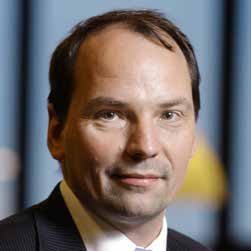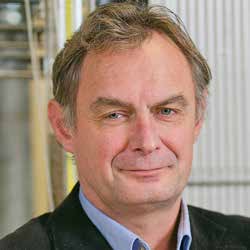Testimonials
Rolf Dollevoet
Professor of Railway Engineering
Professor of Railway Engineering
Creating new technology and methods for the building and construction industry or developing a rail system that can deliver a sustainable and robust train service, requires design engineers with integral knowledge and multiple skills. Innovations are not only the result of good ideas; they must be worked out in a researchbased environment and they need to be sustained with a sound and solid business case. Besides this, an analysis of asset management, risks and the design steps must be carried out before technological innovations can be proved and implemented.
As an EngD trainee, you will work on innovation in the civil engineering sector. Our Structural Engineering group will guide you to find a scientifically based answer to make your innovation project work. Our leading researchers, civil engineering laboratory and the TU Delft ‘measurement train’ will help bring out your best innovations and creative techniques. Develop an idea and challenge yourself. Create, test and validate; your ticket to an Engineering Doctorate in Civil and Environmental Engineering.”

Luuk Rietveld
Professor of Drinking Water & Urban Water Cycle Technology
“Innovation in the civil & environmental engineering industry is complicated. Proper modern water supply and treatment not only depends on innovative process design, but also on factors such as intelligent monitoring and control, social and economic aspects, safety, and environmental impacts of the installations. Therefore, a designer should be able to integrate all these aspect and perform a proper assessment of water infrastructures. It takes time to develop, prove and implement new technologies and ideas, where bringing innovative solutions to the market is the crucial step.
The aim for designing better water treatment and construction systems, sustainable building materials or a high performance water supply or drainage system, starts with an excellent understanding of generic design, risk and asset management principles, and knowledge of the latest technological developments. The academic staff of the Water Management department and laboratories can help you to develop your design into a feasible plan or a working prototype.”
